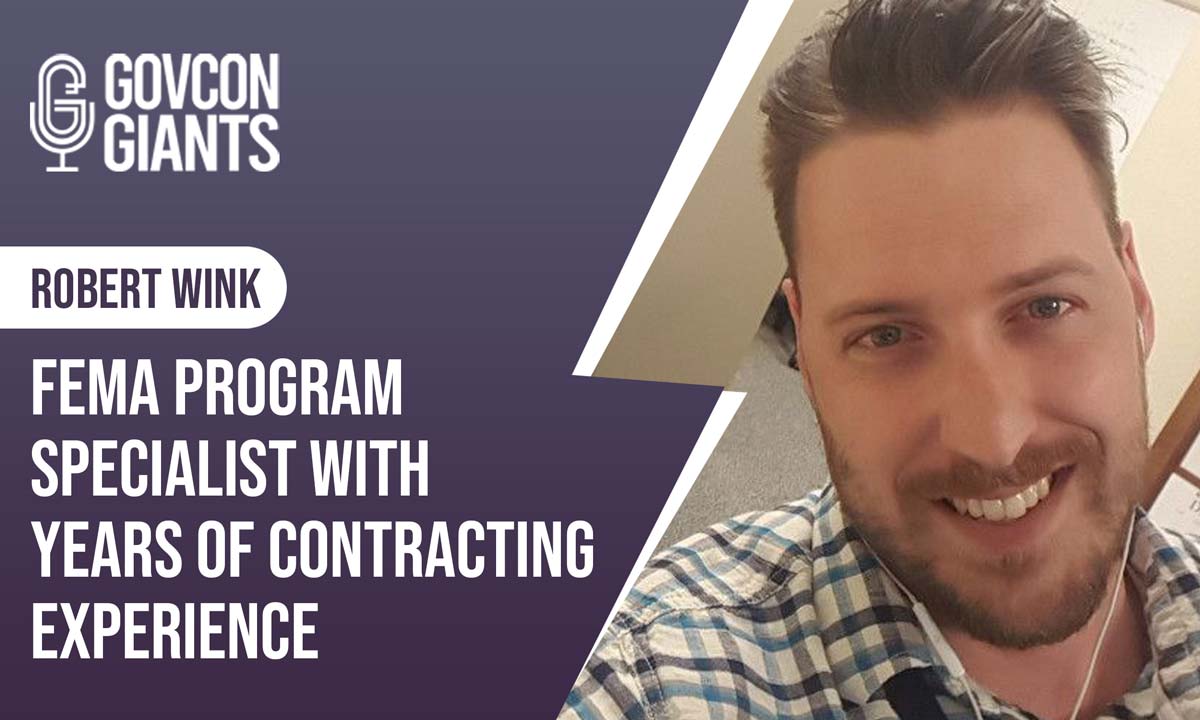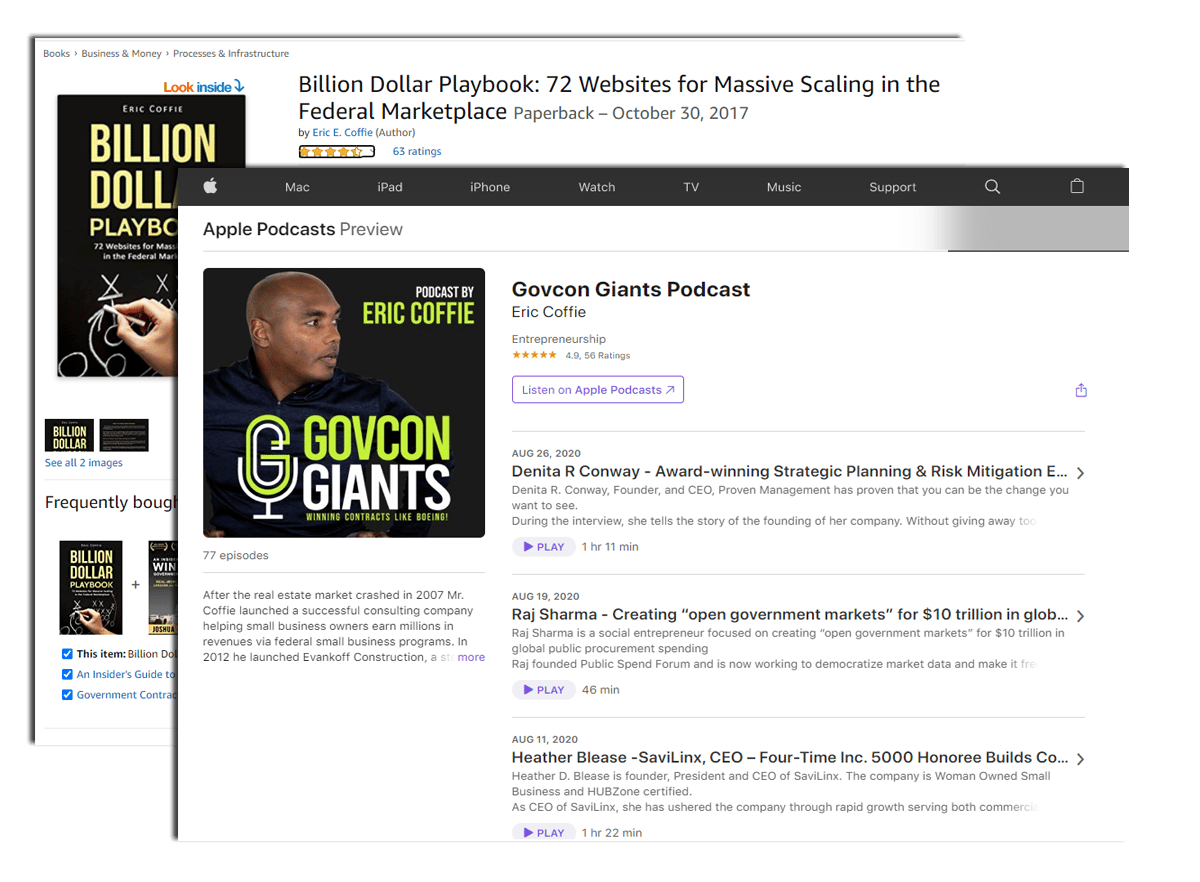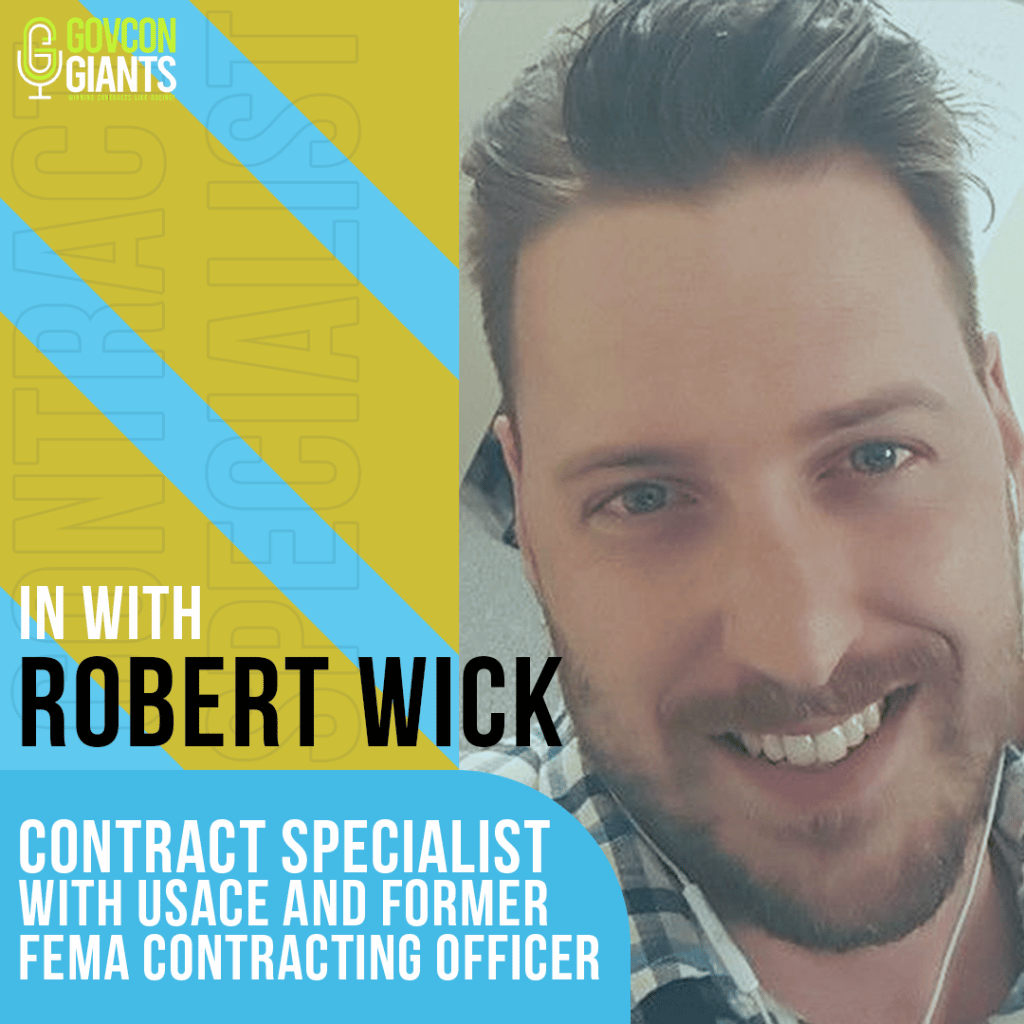Learn how to avoid risking your company and paying millions of dollars in doing government contracts with FEMA Program Specialist, Robert Wink!
BACKGROUND
Robert Wink has years of experience in the US Army with multiple deployments to Iraq before he worked as a contract specialist and contracting officer full-time.
Currently, he is the CEO of Integrity Lion Acquisitions where he offers government consulting and management services.
He is also working as a Program Specialist overseeing Contract Management at the Federal Emergency Management Agency (FEMA).
Apart from that, he also wrote two books: the Small Business Starter Guide to Federal Government Contracts & Searching for Solicitations and the Secrets to Noncompetitive Government Contracts.
KNOW THE DIFFERENCES
Statement Objective versus Performance Work Statements
Performance Work Statement lists all of the things that you need to complete in the contract. With this, you have to provide documents and you have to perform different types of work while the government measures your process along the way.
Meanwhile, the Statement of Objectives states what you need to do within a specific area and time period while you also develop the metrics on how you could accomplish the requirements.
Contract Specialist versus Contracting Officer
The contract specialists are the people who look into the laws and regulations written in the contract. They write everything before it is given to the contracting officer.
Meanwhile, contracting officers are the people who have the authority to sign the check and also review the contract before they can actually argue on behalf of a specific government agency.
Basically, the contracting officer takes all the information that the contract specialist gathers and reviews it before making a determination whether or not to obligate the government.
AVOID THESE MISTAKES
Be careful of companies overcharging free services.
There are a handful of companies providing services that you can actually do for free, such as registering in the SAM database and getting your DUNS, among others.
In fact, in most cases, almost everything that you can do to do business with the government is free.
However, if you want to pay someone because you don’t have the time to do it for yourself, check the companies that offer these services. They may be overcharging you anywhere from $400.00 up to $5,000.00 just to enroll in SAM.gov.
Understand the clauses in your solicitations.
The federal marketplace might be a lucrative space with contracts ranging from thousands to millions, but if you don’t understand the clauses in your solicitations, you might need to pay a lot.
This is why, before sending your proposals, you must first understand all of the clauses written in that solicitation.
You need to read it. You can do it by yourself or you can find a consultant to help you. Just make sure that you check all the boxes correctly.
With this, you need to answer these questions:
1. To whom is this contract written towards?
You need to consider that there are contracts written for all small businesses while there are some that are only for specific small business certifications.
So, before you waste hours of trying to check the boxes, check if it is meant for your certification first.
2. What type of contract is it going to be?
Most importantly, go find FAR provision 52.216-1. What this does is it tells you what type of contract it’s going to be.
You need to know if a contract is a set-aside, a BPA, or another type because it will automatically tell you its price points.
Just then you can provide a fair and reasonable price for that contract while also earning profit.
RESOURCES
If you want to learn more on how to avoid risking your company and paying millions of dollars in doing government contracts with Robert Wink, then check the resources below.
You can also visit the GovCon Giant website or the new GovCon Edu where you learn everything about government contracting!
002: Robert Wink – Contract Specialist with USACE former FEMA Contracting Officer



